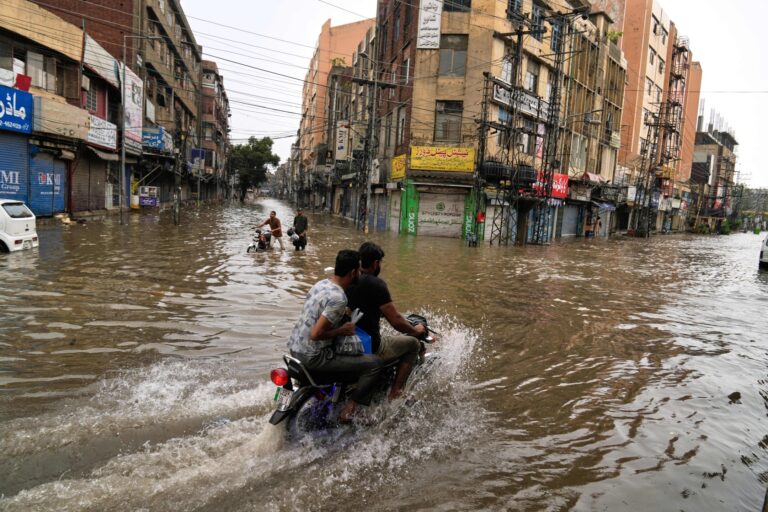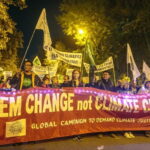Unusually heavy monsoon rains that killed more than 300 people across Pakistan since late June were made 15% more intense by human-caused climate change, according to a new analysis. The study, by the international initiative World Weather Attribution (WWA), analyzed rainfall from June 24 to July 3 using observational data and climate models. It found that rain-triggered floods in northern Pakistan, the most affected area this monsoon season, have become more common in today’s warmer climate. Such events can be expected every five years. Fahad Saeed, senior climate scientist at Climate Analytics and co-author of the study, said at a press briefing that while this year’s South Asian monsoon season, from June 26 to Aug. 3, wasn’t record-breaking, “the concentration and timing of the rains proved devastating.” “In just a few weeks, over 300 lives were lost, mainly due to urban flooding leading to infrastructure collapse,” he said, adding it’s a reminder that even a moderate monsoon season is “capable of triggering widespread disruption when layered upon structural vulnerability, unplanned urban growth and inadequate drainage systems.” The study highlights that a prolonged heat wave in Pakistan and neighboring countries caused “the atmosphere to draw in more moisture and amplify rainfall when the monsoon system arrived,” Saeed said. Despite some uncertainty due to the complex geography of the region and the variability of monsoon rainfall, the results align with broader research, including published studies and projections by the Intergovernmental Panel on Climate Change. Simply put, a warmer atmosphere can hold more…This article was originally published on Mongabay
Search
Recent Research
Want your Blog Article featured on our website?
Research
Featured News
How to Make Your Home More Energy-Efficient in 2026
A practical, future-ready guide for lower bills and a smaller footprint Rising energy prices and
Sustainable Break Rooms: Greening the Office Pantry
Photo by Rodeo Project Management Software on Unsplash A break room may seem like a
Solar-powered AI streetlights to fund coastal highway construction
Nigeria’s long delayed Lagos-Calabar Coastal Highway is set to be rescued by thousands of AI-driven,
Big Data Analytics Enhances Renewable Energy sector
The sun doesn’t send bills, but energy companies using renewable energy do. And to keep
From COP30 to Sri Lanka, indigenous voices shape climate & food sovereignty
COLOMBO — When Indigenous groups converged at the entrance of the U.N. Climate Change Conference
Another threat to reefs: Microplastic chemicals may harm coral reproduction
As the sliver of a new moon shines over Kāneʻohe Bay, Oʻahu, millions of tiny
A Practical Guide to Choosing the Right Organizer Bins Online
Choosing organizer bins sounds simple — until you start comparing sizes, materials, and specs online.
How Lagos traders struggle as styrofoam gradually disappears in markets
Traders have continued to count their losses about five months after the Lagos State Government





